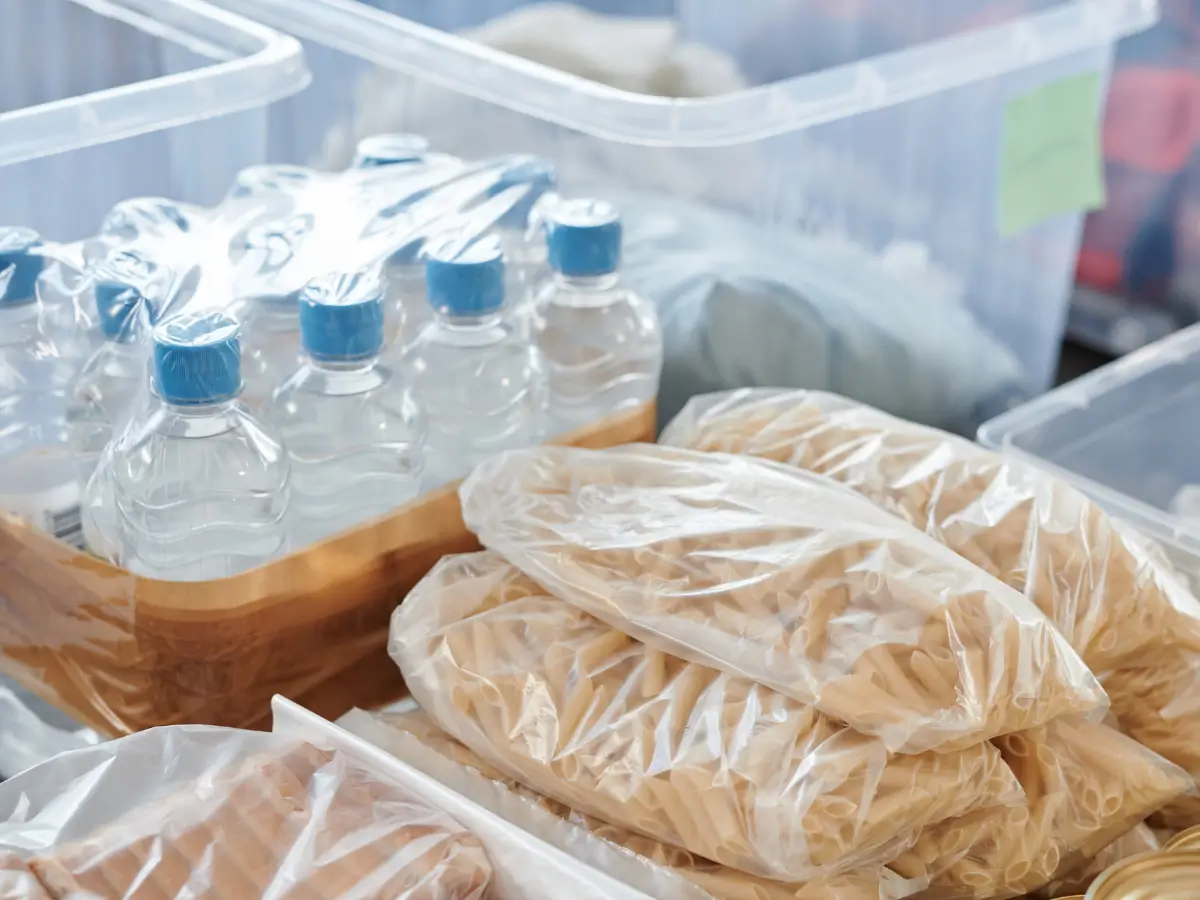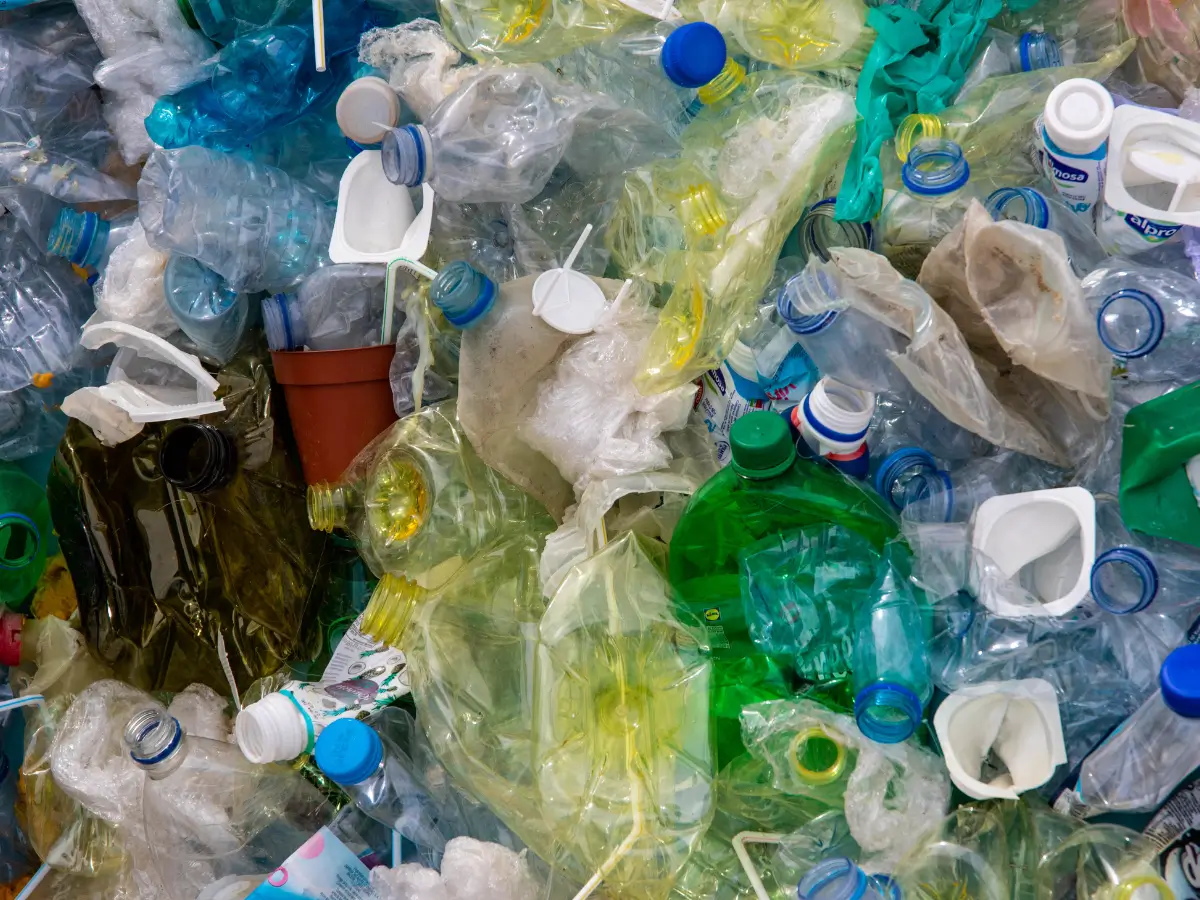Easy Steps to Help Reduce Plastic Waste at Home

Reducing plastic waste at home can have a huge impact on the environment, but it's not without its challenges. Learn more about what you can do at home to help.
Reducing Plastic Waste at Home
Reducing plastic waste at home can have a huge impact on the environment, but it's not without its challenges. There are many different types of plastic, and the recycling process can be a challenge for many municipalities due to the technology needed, varying recovery equipment, and different end markets. It's crucial to check which items are accepted in your local program.
This guide will help you understand the likelihood of recycling various single-use plastic items while sharing tips to avoid using single-use plastics whenever possible.
Plastic Water Bottles
Recyclability: Plastic water bottles are highly sought after by recycling centers. Nearly all recycling facilities accept these bottles, typically made from PET (Polyethylene Terephthalate #1), which are highly recyclable.
Tip: Use a reusable water bottle. Metal is the most sustainable choice!
Plastic Straws
Recyclability: Plastic straws are usually made from #2 Polypropylene or #5 Polyethylene plastics. However, their small size makes them problematic for sorting machines.
Tip: Avoid straws altogether if possible, or use biodegradable straws made from paper or bamboo.
Food Storage Containers
Recyclability: Tupperware and similar containers are sustainable for reuse but may not be recyclable due to food contamination concerns. Check local guidelines for acceptance.
Tip: Reuse containers until they are no longer usable. Consider switching to glass containers for longer product lifespans.
Black Plastic Containers
Recyclability: Many take-out containers are made from black plastic, which is rarely accepted in recycling due to sorting issues.
Tip: Reuse these containers for food storage or donate them to local food shelters.
Plastic Cutlery
Recyclability: Traditional plastic cutlery is often made from #5 Polypropylene or #6 Polystyrene. While #5 is accepted in many places, #6 is not, and they often end up in landfills.
Tip: Use regular silverware or choose compostable cutlery when disposables are necessary.
Yogurt Cups
Recyclability: Many recycling programs accept yogurt cups, but cleanliness is crucial. If they can't be rinsed, it's better to toss them in the garbage.
Tip: Buy in bulk to reduce the number of containers you dispose of. Larger containers also provide reusable storage for leftovers.
Reducing and Recycling
There are many more ways to reduce plastic waste in your home, but hopefully, this guide gives you a good start. Knowing what is and isn't accepted in your local recycling program is key to maintaining a sustainable and eco-friendly household.
Easy Steps to Help Reduce Plastic Waste at Home

Reducing plastic waste at home can have a huge impact on the environment, but it's not without its challenges. Learn more about what you can do at home to help.
Reducing Plastic Waste at Home
Reducing plastic waste at home can have a huge impact on the environment, but it's not without its challenges. There are many different types of plastic, and the recycling process can be a challenge for many municipalities due to the technology needed, varying recovery equipment, and different end markets. It's crucial to check which items are accepted in your local program.
This guide will help you understand the likelihood of recycling various single-use plastic items while sharing tips to avoid using single-use plastics whenever possible.
Plastic Water Bottles
Recyclability: Plastic water bottles are highly sought after by recycling centers. Nearly all recycling facilities accept these bottles, typically made from PET (Polyethylene Terephthalate #1), which are highly recyclable.
Tip: Use a reusable water bottle. Metal is the most sustainable choice!
Plastic Straws
Recyclability: Plastic straws are usually made from #2 Polypropylene or #5 Polyethylene plastics. However, their small size makes them problematic for sorting machines.
Tip: Avoid straws altogether if possible, or use biodegradable straws made from paper or bamboo.
Food Storage Containers
Recyclability: Tupperware and similar containers are sustainable for reuse but may not be recyclable due to food contamination concerns. Check local guidelines for acceptance.
Tip: Reuse containers until they are no longer usable. Consider switching to glass containers for longer product lifespans.
Black Plastic Containers
Recyclability: Many take-out containers are made from black plastic, which is rarely accepted in recycling due to sorting issues.
Tip: Reuse these containers for food storage or donate them to local food shelters.
Plastic Cutlery
Recyclability: Traditional plastic cutlery is often made from #5 Polypropylene or #6 Polystyrene. While #5 is accepted in many places, #6 is not, and they often end up in landfills.
Tip: Use regular silverware or choose compostable cutlery when disposables are necessary.
Yogurt Cups
Recyclability: Many recycling programs accept yogurt cups, but cleanliness is crucial. If they can't be rinsed, it's better to toss them in the garbage.
Tip: Buy in bulk to reduce the number of containers you dispose of. Larger containers also provide reusable storage for leftovers.
Reducing and Recycling
There are many more ways to reduce plastic waste in your home, but hopefully, this guide gives you a good start. Knowing what is and isn't accepted in your local recycling program is key to maintaining a sustainable and eco-friendly household.
Let's work together
We’re a proud partner to 1,700+ municipalities across North America and beyond. From local problems to larger initiatives, we’d love to have a conversation. Send us a note and we’ll be in touch as soon as possible.


